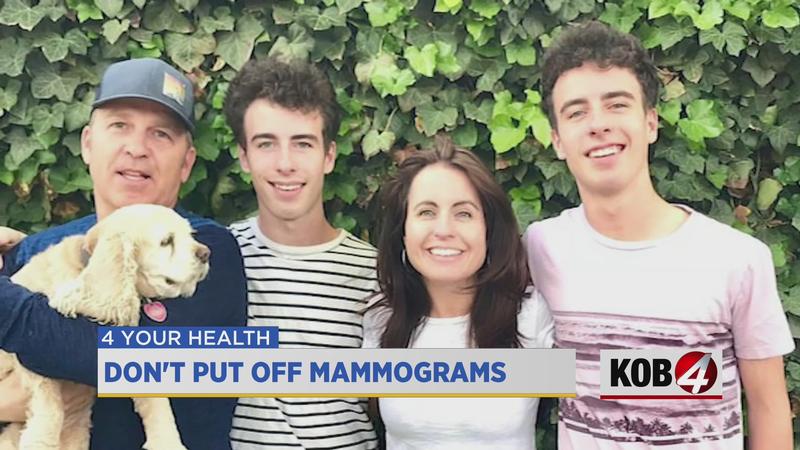New Mexico author shares about breast cancer experience to encourage mammograms
[anvplayer video=”5053633″ station=”998127″]
ALBUQUERQUE, N.M. – Health care experts, at Presbyterian Hospital, are concerned with a huge drop in women getting their annual mammograms that could save thousands of lives a year.
According to Dr. Jennifer Bishop, a breast surgeon at Presbyterian, up to 15,000 lives could be saved nationwide annually if every woman, starting at age 40, went in for an annual mammogram screening. However, many women are postponing their screening during the pandemic.
"Typically we would see volumes of several-thousand women per month getting screened and we were seeing numbers close to half of that in January and February, especially before the vaccine came out, so we’re losing quite a bit," Dr. Bishop explained.
One of Bishop’s patients, Jennifer Hull, however, discovered she had two cancerous tumors during a routine exam at age 48.
"I had to go back for more radiology and I had to have six needle biopsies," Hull explained. "When I went back for more radiology, that’s when everything kind of got really frightening."

The mammogram led to six months of testing, biopsies, a PET scan, MRI and the discovery that she had bilateral breast cancer which led to a double mastectomy.
"The radiologist suggested it was possible that the cancer had spread to my lungs, to my skin, to my chest wall, possibly near my trachea and I was shocked," Hull elaborated.
Hull, an author, learned on the day of her diagnosis that her book about a New Mexico mountaineer’s experience with a Mount Everest earthquake would be published. Now, she will be writing about her own experiences.
Hull describes herself as usually being a private person but she wanted to share her story to bring attention to breast cancer and the steps women can take to detect any early issues.
"I feel really grateful, you know, I think part of living with cancer is living with the chance of recurrence and that’s not easy to get used to," Hull said. "But I know that my prognosis is relatively very, very, very good and I’m just incredibly thankful for the care I’ve received and, I just, I feel great."
Throughout the long process, Hull’s main goal was to make sure she could be around to take care of her twin boys. Now, she is going through hormone therapy and recently sent her boys off to college.
Bishop recommends that all women get an annual mammogram after age 40 to detect any cancerous activity early. If you’re younger, have a family health history or you’re noticing something wrong, talk to your doctor. If you’re a new mom, don’t wait either.
"I’m currently breastfeeding and I’m going to get my mammogram when I turn 40," Dr. Bishop said. "They used to recommend waiting until you’d weaned and we actually were missing cancers being developed that were diagnosed too late."
If you have the option, doctors recommend getting a 3D mammogram. Plus, you won’t need a referral to get screened.